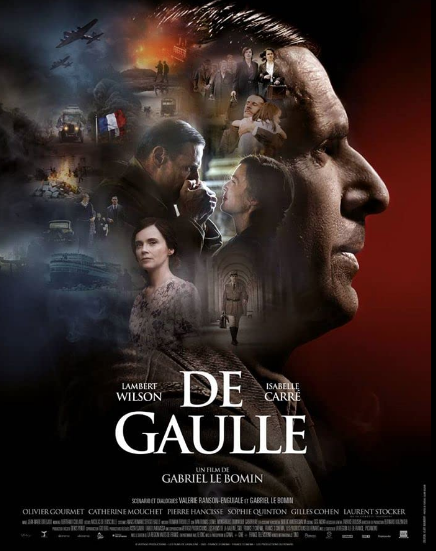De Gaulle (2020)
IMDb meta-data is run time 1 hour and 48 minutes, rated 6.1 by 1,500 cinematizens.
Genre: snapshot biopic.
Verdict: The man under the kepi.
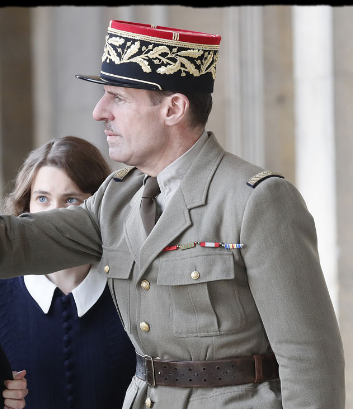
The film, covers less than three months from April to June 1940 with an emphasis on De Gaulle’s family and home life upon which the war intrudes with the Blitzkrieg causing the two strands of the story to unravel. Wife Yvonne stays at home in Lille with the children and the soldier goes to war. Events pull them further apart when De Gaulle’s duties take him here and there, to Bordeaux, to London, to Toulouse, to Nantes, to Paris, and back and forth. Communication is lost with Yvonne, and she in turn flees the Wehrmacht advance, children in tow, like thousands and thousands of others.
Two stories unwind, her flight and his fight. She travels through a war zone (check the TV news tonight from Ukraine for graphics) and he battles across a table first with the French cabinet where he lost and then with Churchill where he drew.
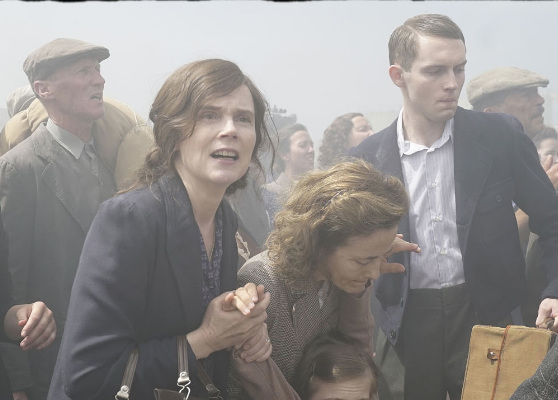
Why would Churchill invest in this nobody? De Gaulle has an answer: Because I am here.
Much of it is nicely done, though the historic timeline is altered to tell the stories and many written exchanges become interviews.
Listening to others at the conference tables speak in abstract generalisations about the distant war, De Gaulle imagines what Yvonne must be going through. For her part when she sees fields strewn with corpses in uniforms she wonders if De Gaulle might lying in a ditch somewhere. Ironically, the soldier is relatively safe in all the proceedings while she is constantly at risk from army, air, and naval attack as she eventually finds her way in a human tide to England.
There are some explanations along the way about why De Gaulle, a soldier’s soldier, took the doubtful, dubious, and dangerous path he did, and part of it was his personal loathing for what his one-time mentor Philip Pétain had become – arrogant, vain, greedy, rapacious, selfish – but more important was a determination to keep faith with the fallen, some of whom had died at his command around Sedan, continuing their fight so that they did not die in vain.
There is also an explanation of the first radio broadcast that makes sense even if it is not quite historically accurate. Like a lot of good ideas, it came from a subordinate.
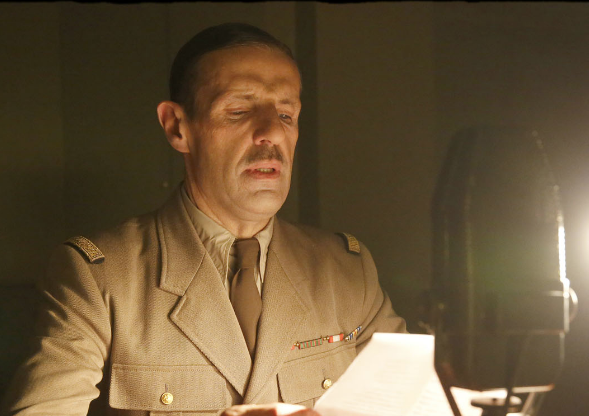
Why would Churchill let him on the BBC when there was still hope of negotiation with a French government? De Gaulle has an answer for that, too: Because you know the power of words. Let them be spoken.
The events are cataclysmic but the presentation is low key, emphasising the individuals and not the big booms and bangs, to the disappoint of many of the cinematizens raters. The actors look and dress the parts they play so unlike Hollywood or Pinewood. The fashions are of the times for both men and women. Soldiers have army haircuts and wear hats most of the time. The production values of Yvonne’s trek are excellent, if disturbing, from one disaster to another across the early summer countryside amid the blooming wild flowers, some splattered with the blood of children. The anguish of the Premier Paul Reynaud (with his frightened Jewish wife) as he struggles to fight on are in the background but very well realised. Georges Mandel, the only Jew in the cabinet, is a crucial player in supporting both Reynaud and De Gaulle, and that fact condemns them in the eyes of Pétain as tools of the Jews.
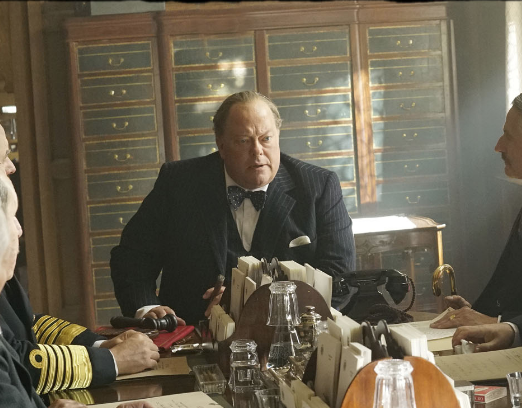
This Churchill, played by Tim Hudson, is one of the better ones, because the actor does not try to incorporate every tic and mannerism, and so distract, but concentrates on the inherent drama of the moment.

